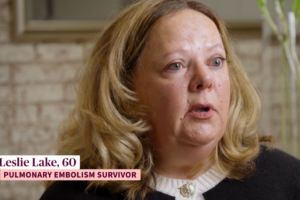Anticoagulants
While on warfarin, do I need to change my diet? Are there any foods to be careful with?
A balanced, healthy diet is always recommended, of course, but you can eat what you normally enjoy if you do so consistently. It is okay, and encouraged, to make the change to a healthier diet if you work with your healthcare provider to monitor your INR and make sure that you are becoming consistent with your diet.
Some of the healthiest foods that you can eat, including foods like broccoli and spinach, are high in vitamin K. You might read or be told that you need to be aware of your vitamin K intake, because vitamin K can interfere with how warfarin works or that it will make it less effective.
It’s always very important to understand how different things, like food, might affect how your medication works. However, if you eat these very healthy foods that are rich in vitamin K consistently – in the same amounts over time with no sudden changes – you can enjoy the wonderful nutritional benefits they provide as part of a healthy diet. You should talk with your healthcare provider before making any changes in what you eat. Most doctors would rather change your dose of anticoagulant than your diet.
Categories:
Why do I feel colder? Is this due to the anticoagulant?
Changes in perception of hot and cold are highly individual, but the thickness or viscosity of our blood has nothing to do with how we experience the temperature, therefore an association does not seem definitive.
Categories:
Is it the anticoagulant that is causing my hair to fall out? If so, why is that happening?
Yes, It’s a known side effect of all anticoagulants but mainly with warfarin. To fix this, you would usually switch to another class of anticoagulant if the hair loss does not improve. Occasionally Coenzyme Q can help if the hair loss is warfarin related.
Categories:
Should I take vitamin E supplements while on Coumadin?
Vitamin E is a mild anticoagulant, and doses more than 400 units should be avoided.
Categories:
What if I need to have surgery while on an anticoagulant?
Share your medical history with your doctor or medical team, make sure they know what anticoagulant you are on and that there is a plan in place to help prevent blood clots when you are in the hospital and when you return home. You need to see your doctor at least two weeks before surgery.
Depending upon whether the surgery is major, or minor will determine the strategy for managing your anticoagulants. If the surgery is minor the doctor may not stop your anticoagulation at all. If the surgery is major, you will have to be removed temporarily. If a blood clot was 3+ months ago, generally anticoagulants will be stopped (most are 48 hours in advance) and can be started again after the surgery. Some patients are okay being off their anticoagulant and some are not.
Most of the time a plan for surgery is made by assessing a patient’s risk factors. Check out NBCA’s pre-surgery checklist for hip and knee replacement patients. Learn more about managing anticoagulants before, during, and after medical procedures. General guidelines have been made that everyone is put on a low dose of anticoagulants for 2 weeks after a knee replacement, one month after a hip replacement, and variable times after hip fractures. Blood clot risk increases with anything that involved trauma or orthopedics.
Categories:
Is it necessary to be weaned gradually off anticoagulants?
Anticoagulants can be stopped without any change in dose. Their effect lasts only for a few days.
Categories:
What if I want to stop taking my anticoagulant?
Patients can get tired of taking any medicine. This is a decision you should talk to your doctor about, because stopping your anticoagulant increases your risk of stroke and developing another blood clot.
Categories:
I felt secure when I was taking an anticoagulant, and now feel worried about having another clot, now that I am off my anticoagulant.
This concern is common, and you should discuss your worry with your doctor. Try to concentrate on your freedom from taking pills that need blood testing. Doctors base the decision to stop anticoagulants on many factors such as what caused your clot, where it happened, and what your personal and family history of clots is. There is a lot of thought in their decision.
Categories:
What is the most effective way to take medication?
As directed by your doctor. Please do not cut a tablet as they are not scored; i.e., often the dose after 6 months is reduced 50% so if you are taking 5 mg of Eliquis twice a day and you are asked to reduce to 2.5 mg twice a day you will need a new prescription for 2.5 mg twice a day; same thing with 20 mg Xarelto daily being reduced to 10 mg a day.
Categories:
What if I re-clot on the anticoagulant?
If taking your medication as prescribed, and you did not miss any doses, the chance that you will re-clot is only 1-2 % at most. If you ever develop a blood clot when you are on anticoagulants, 3 most likely explanations are, 1. You have not been compliant with your medication, 2. You did not take the drug correctly i.e., you did not take with food, or 3. You are taking other medication which interfered with the anticoagulant. A good example of drug interference would be anti-seizure medication.




